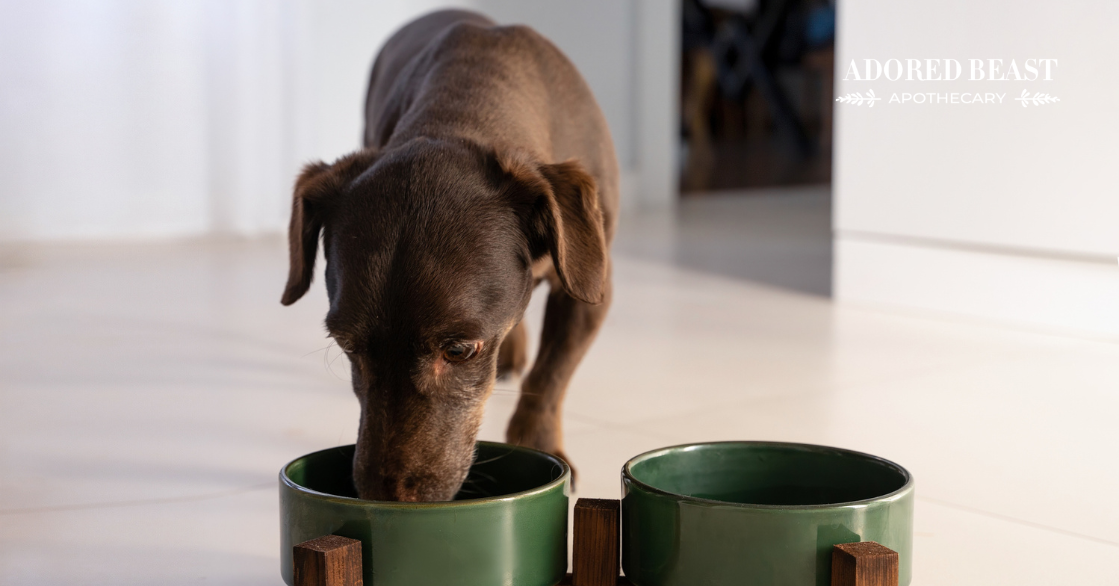A few weeks ago, we were visiting my sister, and while we were there, her big, goofy 110 shepherd cross, Zeus, ate a bar of soap.
Yes, a bar of soap. He’d never paid any attention to soap before. Mind you, he didn’t really have access to it – this was a fluke. Never have we had a dog eat soap.
And, not knowing the risks, we both went “ok, is this going to be an issue?”
Maybe you’ve been there before too – calling the after hours clinic saying “my dog ate soap, what do I do?”
Or maybe you didn’t even realize it was a thing. We didn’t, until it happened.
So, today I want to cover the dangers of soap and what do to if your dog decides that that bar of Irish Spring would make a tasty snack.
Is Soap Dangerous?
We don’t want to scare you, but if your dog ate soap, it’s not something to ignore. Don’t panic, but also don’t ‘do nothing’.
If your dog ate soap, it can potentially lead to gastrointestinal upset and other complications.
Of course, the specific dangers depend on the ingredients of the soap, as well as the amount ingested and the size of your dog, but here are some potential risks:
GI Upset: Obviously, soap is not intended for consumption by anyone, human or dog. It can irritate the lining of the stomach and intestines. This can lead to symptoms such as vomiting, diarrhea, abdominal pain, and discomfort. Drooling, lethargy, or a loss of appetite may also be signs – and not just of GI upset, but also any of the risks on this list.
Obstruction: Ingesting a large amount of soap or swallowing large chunks of it can lead to gastrointestinal obstruction. This occurs when the soap forms a blockage in the digestive tract, preventing the passage of food and fluids. Symptoms of obstruction include vomiting, abdominal pain, loss of appetite, and constipation.
Toxicity: Some types of soap may contain ingredients that are toxic to dogs. For example, certain fragrances, dyes, or additives can be harmful when ingested in large amounts. Additionally, soap made with essential oils or harsh chemicals may cause toxicity symptoms such as lethargy, weakness, tremors, and difficulty breathing. Again, the risk here depends on the soap.
Aspiration: If a dog vomits after ingesting soap, there is a risk of aspiration. This is where soap or stomach contents are inhaled into the lungs. This can lead to aspiration pneumonia, a serious respiratory condition that requires immediate veterinary attention.
**Note: We’re talking specifically about bars of soap here, but the same logic applies to any type of soap – dish soap, dishwasher detergent, laundry detergent. All are just as problematic (even potentially more so) and the eating of any of these necessitate a call to your vet.
Help! My Dog Ate Soap: Next Steps
If your dog ate soap, you want to do a few things right off the hop:
- Take away any soap that wasn’t eaten. Note the type of soap and the amount your dog ate.
- Call your veterinarian.They’ll direct you on next steps, and signs to watch for. They might also recommend you call the poison control hotline. They have developed a full work up of the different types of soap, their ingredients, and the amounts that are dangerous. (If it’s after hours, call the local after hours clinic, or call poison control directly. Don’t wait until Monday when the clinic is open.)
- When you call, make sure you also give your dog’s age (if they don’t ask), and be sure to tell them about any existing health concerns or conditions. These are important factors that need to be considered and may change the course of their direction.
- Follow their direction. If they say head to the vet, go. If they say keep an eye on your dog, do that, noting any changes or out-of-the-norm behaviour.
- If, at any time, you’re nervous or concerned, just call your vet and tell them you’re heading their way. If they can’t fit you in, you’ll know to get to the emergency clinic instead.
- Afterwards, support the gut. Gut Soothe would be our go-to for the irritation, or Fido’s Flora for the detoxifying effects of the fulvic and humic acid. Liver Tonic can also help clean out the portal organs and with detoxification process overall.
With Zeus, we did exactly that. We called the after hours clinic and they directed us to the poison control hotline. After a full assessment of the soap and Zeus, we were told to keep an eye on him. They said that the soap he’d eaten (and the amount) likely wasn’t going to do more than upset his belly. He had a gurgly tummy overnight, but we gave him some Gut Soothe with a little pure pumpkin puree, and he was just fine. And no, he wasn’t burping bubbles…
Apparently, soap is a much more attractive “non-food item” than we’d initially thought. Lots of dogs eat soap. But if your dog ate soap for the first time, and you don’t know what to do, these steps will help. And even if your dog hasn’t had any interest in soap, learn from Zeus and keep it out of reach at all times. Soap takes “clean ingredients” to a whole new level – just not one we consider best for snacking.












